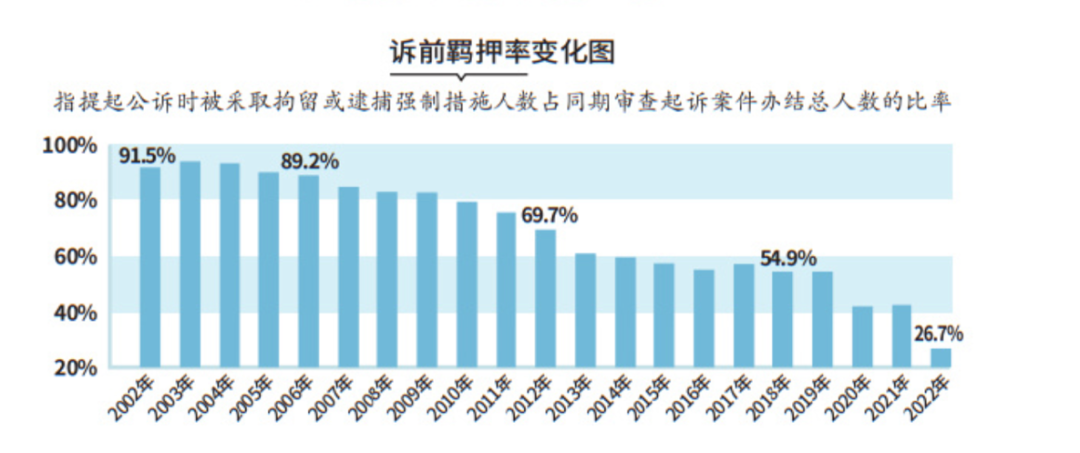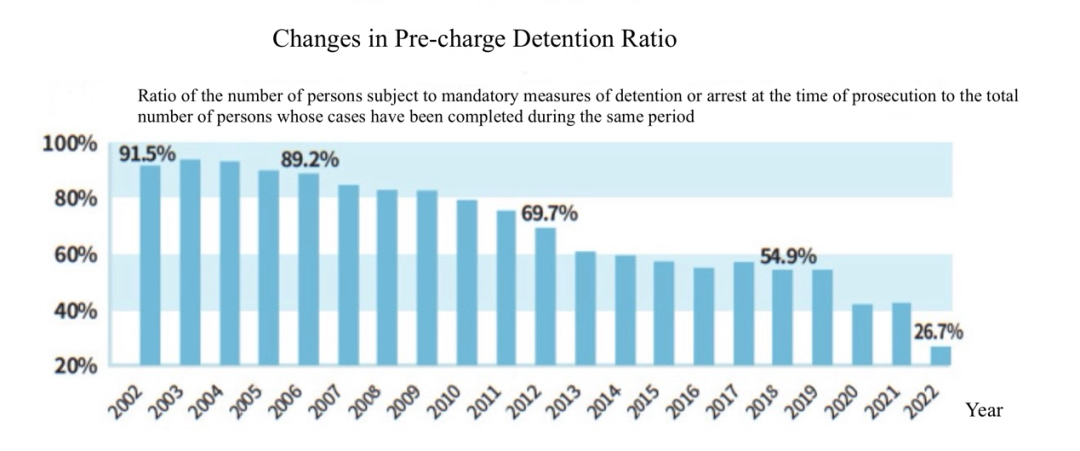本文为中国涉外刑事辩护实务的第五篇,将针对类似“米兰达警告”、“保释”、“辩诉交易”等方面的诉讼权利进行中西方规定的对比,进而厘清涉外刑事案件中当事人及家属的认知误区。
由于部分外国籍当事人来自普通法系国家,对外国法中的权利更为熟悉。然而,作为大陆法系国家,中国对涉案犯罪嫌疑人和被告人的部分诉讼权利保障与普通法系国家看似相同,实有区别。详述如下:
一、米兰达警告v.诉讼权利告知
在中国,办案机关在第一次讯问犯罪嫌疑人或对其采取强制措施之前,要告知犯罪嫌疑人其所享有的诉讼权利。这与“你有权保持沉默,但你说的每一句话都将成为呈堂证供”的米兰达警告有异曲同工之处。与米兰达警告相比,虽然中国无沉默权的有关规定,但中国办案机关对外国籍犯罪嫌疑人的权利义务告知内容更加完整。

(一)权利义务告知内容
实践中,侦查人员会出示一份《犯罪嫌疑人诉讼权利义务告知书》让犯罪嫌疑人阅读知悉并签字捺印。对于外国籍当事人而言,《犯罪嫌疑人诉讼权利义务告知书》中通常会告知的如下权利和义务应当重点关注:
1.获取翻译帮助的权利;
2.申请回避的权利;
3.委托律师作辩护人的权利;
4.对于侦查人员的提问,应当如实回答;与本案无关的问题,有拒绝回答的权利;在接受讯问时有权为自己辩解;
5.有核对讯问笔录的权利,笔录记载有遗漏或者差错,可以提出补充或者改正;
6.有申请变更强制措施的权利,对于采取强制措施届满的,有权要求解除强制措施。
(二)实务要点
下面将对涉嫌刑事犯罪的外国籍当事人在诉讼权利义务告知中需要重点关注的事项予以特别提示。
首先,如实回答非常关键。中国法律规定,如实供述自己罪行的,可以从轻处罚;因如实供述自己罪行,避免特别严重后果发生的,可以从宽处理。另外,如实供述还是下述认罪认罚从宽制度的前提。这里需要提醒外国籍当事人注意的是,与适用米兰达警告的国家不同,中国无沉默权和讯问律师在场权的相关规定。故而,在面对侦查人员的讯问时,应如实供述。在与律师会见时,可以咨询律师相关的法律问题,去了解被指控罪行的法律含义和法律后果等相关信息。
其次,在申请回避的权利中,外国籍当事人需要着重关注翻译人员是否需要回避,即是否有下列情形:(1)是本案的当事人或者是当事人的近亲属的;(2)本人或者他的近亲属和本案有利害关系的;(3)担任过本案的证人、鉴定人、辩护人、诉讼代理人的;(4)与本案当事人有其他关系,可能影响公正处理案件的。对于驳回申请回避的决定,可以申请复议一次。
再次,在核对讯问笔录时,若侦查人员用中文记载,而外国籍当事人不通晓中文时,其有权要求翻译人员为其翻译后,再进行核对,以确保笔录内容与其回答相一致。
最后,如果因外国籍当事人被羁押,其近亲属或国籍国使领馆未帮其委托律师,其可以选择向法律援助机构提出申请,接受指派律师为其辩护。
二、保释v.取保候审
来自普通法系的外国籍当事人更熟悉保释制度。保释制度一般指在一定的条件下(通常是支付一定金额的保证金并承诺在法庭要求时出庭)获取审前不羁押。这与中国的取保候审制度相类似,但在适用范围、程序和保证方式方面,二者都有明显的区别,具体如下:
(一)适用范围不同
保释适用于各类性质的案件,不受是否会判处实刑的限制。然而,中国《刑事诉讼法》明确规定了取保候审的适用条件。条件包括:(1)可能判处管制、拘役或者独立适用附加刑的;(2)可能判处有期徒刑以上刑罚,采取取保候审不致发生社会危险性的;(3)患有严重疾病、生活不能自理,怀孕或者正在哺乳自己婴儿的妇女,采取取保候审不致发生社会危险性的;(4)羁押期限届满,案件尚未办结,需要采取取保候审的。
虽然上述规定没有明确限制罪行严重的案件不得适用取保候审,但从司法实务经验来看,可能判处实刑的案件审前取保的可能性是较小的。
(二)适用程序不同
国内外对“逮捕”的含义理解有歧义。国外一般是先实施逮捕,再决定是羁押、无条件保释还是有条件保释。此处“逮捕”的概念,对应《中国刑事诉讼法》中的“刑事拘留”。在中国,限制人身自由一般是先进行刑事拘留,之后再决定是否逮捕,不能逮捕的应取保候审。具体程序性规定参见中国涉外刑事辩护实务(二)。[1]
(三)保证方式不同
国外保释制度多以现金或财产为保证方式。在中国,取保候审除以财产保外,也有地区仅采用人保的方式(如北京)。目前,中国取保候审暂无统一的电子监控、宵禁、保释旅馆等附加条件保释方式。
(四)审前羁押问题
在国外,保释是犯罪嫌疑人的一项基本权利,司法机构会优先考虑是否对嫌疑人进行保释,不予保释应属例外。在中国,审前羁押是个问题,虽然在实施少捕慎诉慎押刑事政策之后,这个问题目前已经获得国家的重视,诉前羁押率在逐年下降(见下图[2]),但仍期能够得到彻底的改善。

三、辩诉交易v.认罪认罚
中国的认罪认罚从宽制度与辩诉交易的前提都是要求被告人自愿认罪,目的都是为了提高司法效率,同时保障被告人的快速审判权。但两种制度仍有区别:
(一)基于辩诉交易,控方通常降级指控、取消部分指控或建议较轻。然而,中国认罪认罚从宽力度有限,认罪认罚后的结果只可以是从宽处理,即量刑的从宽和从简处理,在罪名和罪数的认定方面基本没有从宽空间。
(二)辩诉交易中“交易”体现出控辩双方谈判的空间和妥协。然而,中国认罪认罚制度以被告人和辩护律师能够接受检察院量刑建议为主,协商空间有限。
基于上述情况,外国籍当事人在签署认罪认罚具结书之前,应与律师进行充分沟通,权衡利弊之后再做决定。
通过上述中西方诉讼权利义务对比解析,希望能帮助外国籍当事人及家属理清一些基本概念误区,更好的行使自己的诉讼权利,从容应对案件。
Comparison of litigation rights between China and the Western Countries--China’s Foreign-related Criminal Defense Practice(Part V)
This article is the fifth in a series of articles on China’s Foreign-related Criminal Defense Practice.It will compare Chinese and Western countries’regulations on procedural rights such as Miranda warnings,Bail,and plea bargaining.We hope this article can clear up the misunderstandings of the foreigners and their families who are involved in criminal cases in China.
Since some foreigners come from common law countries,they are more familiar with the litigation rights in their own countries.However,as a civil law country,China provides certain litigation rights protection for crime suspects and defendants that may appear similar to common law jurisdictions but has notable differences.The details are elaborated below:
I.Miranda Warning v.Notification of Litigation Rights
In China,before interrogating a criminal suspect for the first time or taking compulsory measures against him,the officer in-charge must inform the criminal suspect of his litigation rights.This is similar to the Miranda warning,which states that“You have the right to remain silent.Anything you say can and will be used against you in a court of law.”Compared with the Miranda warning,China does not have an explicit provision on the right to silence.However,Chinese police officers have the duty to inform more complete information on the rights and obligations of foreign criminal suspects.

1.1 Contents of Notification of Litigation Rights
In practice,Chinese police officers will present a“Notification of Criminal Suspect’s Litigation Rights and Obligations”for the criminal suspects to read,understand and sign.For foreign criminal suspects,the following rights and obligations usually notified in the“Notification of Litigation Rights and Obligations of Criminal Suspects”deserves special attention:
1.The right to obtain translation assistance;
2.The right to request a member of the judicial,procuratorial or investigatory personnel withdrawal;
3.The right to appoint a lawyer as defender;
4.The criminal suspects shall answer the investigators’questions truthfully,but they shall have the right to refuse to answer any questions that are irrelevant to the case;they have the right to defend themselves when being interrogated;
5.The right to check interrogation records,if there are omissions or errors,the criminal suspect may make additions or corrections;
6.The right to apply for changing the compulsory measures,and the right to request the termination of a compulsory measure when the term of the compulsory measure expires.
1.2 Practical Considerations
The following provides specific reminders for foreigner suspected of criminal offenses when notifying their rights and obligations in litigation:
First,telling truth is crucial.Chinese law stipulates that those who truthfully confess their crimes may be given a lighter punishment,and leniency may be granted to those who confess to avoid particularly serious consequence.In addition,truthful confession is the prerequisite for the leniency system of confession and punishment described below.When meeting with a lawyer,the foreign suspects can consult the lawyer on relevant legal issues to understand the meaning and consequences of the alleged crime.
Secondly,in the right to request withdrawal,the foreigners need to focus on whether the translator has the conflict of interest,that is,whether the translator has the following circumstances:
1.If he is a party or a close relative of a party to the case;
2.If he or a close relative of his has an interest in the case;
3.If he has served as a witness,expert witness,defender or agent ad litem in the current case;or
4.If he has any other relations with a party to the case that could affect the impartial handling of the case.
One application for reconsideration may be filed for a decision to reject an application for withdrawal.
Thirdly,when checking the interrogation record,if the investigators record it in Chinese and the foreigners are not proficient in Chinese,they have the right to request translation and ensure the record aligns with their answers.
Finally,if a foreigner is detained and no lawyer is appointed by close relatives,the Embassy,or consulate,he may choose to apply to a legal aid agency for the appointment of a defense lawyer.
II.Bail v.Release upon Bail Pending Trial
Foreign individuals from common law jurisdictions are more familiar with the bail system.The bail system generally refers to obtaining pre-trial release under certain conditions(usually paying a certain amount of deposit and promising to appear in court when required).This is akin to China’s release upon bail pending trial system,but there are notable differences in terms of applicability,procedures,and guarantee methods.
2.1 Differences in Applicability
Bail is applicable to cases of all types,without being limited by the imposition of a sentence to be actually served in prison.However,China’s Criminal Procedure Law explicitly sets out the conditions for release upon bail pending trial.Conditions include:
1.the criminal suspect or defendant may be sentenced to supervision without incarceration,limited incarceration,or an accessory penalty only;
2.the criminal suspect or defendant may be sentenced to a fixed-term imprisonment or a heavier penalty but will not cause danger to the public if granted bail;
3.the criminal suspect or defendant suffers a serious illness and cannot live by himself or herself or is a pregnant woman or a woman who is breastfeeding her own baby and will not cause danger to the public if granted bail;or
4.The term of custody of the criminal suspect or defendant has expired but the case has not been closed,and a bail is necessary.
Although the above provisions do not explicitly restrict the application of bail pending trial to cases involving serious crimes,based on judicial practice,the likelihood of bail pending trial for cases potentially resulting in actual imprisonment is relatively low.
2.2 Differences in the Applicable Procedures
There is ambiguity in the understanding of the meaning of“Arrest”between China and abroad.Overseas countries generally arrest a person before deciding whether to place him or her in custody,release him or her on unconditional or conditional bail.But the concept of“Arrest”here corresponds to“criminal detention”in the China’s Criminal Procedure Law.
In China,restriction of personal liberty generally begins with criminal detention first,followed by a decision on whether to arrest or not;those who cannot be arrested are released upon bail pending trial.For specific procedural provisions,please refer to China’s Foreign-related Criminal Defense Practice(II).
2.3 Different Ways of Guarantee
Bail system outside of China mostly implies a deposit of money or some form of property to the court by the suspect in return for the release from pretrial detention.In China,in addition to pay guaranty,there are some regions that only use the way of providing guarantor(such as Beijing).At present,there is no uniform method of additional conditions for release pending trial in China,such as electronic monitoring,curfews,or bail hostels.
2.4 The Issue of Pretrial Detention
In some foreign countries,bail is a fundamental right of criminal suspects.Chinese Judicial institutions are slightly different.In China,pretrial detention is an issue that is still under judicial reform.Currently,pretrial detention issue has received national attention following the implementation of a criminal policy of“Less Arrest,More Careful Prosecution and Detention”.The rate of pretrial detention is declining year by year(see the chart below),but we still hope that it will be improved fundamentally.

2.5 Plea Bargain v.Leniency System of Confession and Punishment
The premise of China’s leniency system of confession and punishment and plea bargaining requires the defendant to plead guilty voluntarily,with the purpose of improving judicial efficiency and protecting the defendant’s right to a speedy trial.However,there are still differences between the two systems:
Based on plea bargaining,the prosecution usually downgrades the charges,cancels some charges,or recommends lighter charges.To some extent,China’s leniency for guilty confession and punishment is limited.The result after a confession and punishment can only be leniency,that is,leniency in sentencing and simplicity in procedure.There is basically no room for leniency in the determination of the crime and the number of crimes.
The“bargain”in plea bargaining reflects the negotiation space and compromise between the prosecution and defense.Nevertheless,in China’s leniency system of confession and punishment,the emphasis is on the defendant and defense attorney accepting the sentencing recommendations of the prosecutor,with limited room for negotiation.
Given the above circumstances,foreign individuals should engage in thorough communication with their attorneys before signing a confession and acceptance of punishment statement.Only after carefully weighing the pros and cons should a decision be made.
Through the above comparative analysis of Chinese and Western countries’litigation rights,we hope to help foreigners and their families clarify some basic conceptual misunderstandings,better exercise their litigation rights and confidently handle the case.
注释:
[1]参见链接:https://mp.weixin.qq.com/s/7G5g9RnmwadUilNrVJkKXw
[2]数据来源为:《诉前羁押率从2018年54.9%降至2022年26.7%,为有司法统计以来最低》,见中华人民共和国最高人民检察院官方网站,网页链接为:https://www.spp.gov.cn/spp/2023zgjgzbg/202303/t20230307_606569.shtml



